Lio Min writes about music, magic, and sadness at the nexus of queer youth culture and metamorphic Asia America. Their culture reporting and fiction have appeared in The FADER, the Asian American Writers’ Workshop, Nylon, and many other outlets. They live in California.
I had the opportunity to interview Lio, which you can read below.
First of all, welcome to Geeks OUT! Could you tell us a little about yourself?
At various points in my life, I’ve been a boba barista, mailroom attendant, summer camp teacher, floral clerk, and call center operator. Throughout it all, I’ve reported and written stories all over the internet and a few times for print. The things I most write about are Asian American youth and music. Beating Heart Baby is my first novel.
What can you tell us about your most recent book, Beating Heart Baby? What was the inspiration for this project? And where did the title come from?
BHB is about boys, bands, and Los Angeles—and also internet friendships, anime, viral stardom, historical trauma, and modern Asian America. The summary that I personally feel is most accurate comes from a writer for the Chicago Review of Books, who described it as a story that shows “the violence and ecstasy of what it means to become an artist, to really be seen, both as and beyond a young adult.” My joke/not joke synopsis is, imagine if The Song of Achilles was actually about a song, set in our contemporary world, and ended with something more ambiguous than death.
So. Back in 2018, I worked at a summer camp, primarily with kids aged five to thirteen. There were a couple of kids there who left an impression on me — as an adult, you can too easily build an idea about who kids are and what they want out of life, and lose sight of the wonder and mischief and dangers and desires of childhood as it plays out. (Which, of course, you lived through the whole circus yourself, but at a certain point you begin to slip into the binary thinking of “my” generation versus “other” generations.) So I came into this job thinking I knew about kids and left the job much more tender-hearted about the trials and tribulations inherent in modern childhood. Some of the kids are, based on honed intuition, definitely going to go through “gender stuff” in the future, at a time when that vector of children’s autonomy is more and more surveilled if not outright criminalized. I found myself wondering if/how I could build a vision of the future these kids deserve, one that’s set in “the real world” but imagines what could be as the template for reality.
Re: the Asian American POV centricity, there are unique cultural frameworks within the multitudes of Asian Americas that I wanted to blow up (as in photography, not explosives) and examine as someone who lives in, critically observes, and conflictingly loves the coalition and histories suggested by the term “Asian American.” Re: the music element, I wanted to play with ideas about ownership, visibility, and identity (as an aesthetic influence but also as a commercial imperative) within the music world, focusing specifically on the increasingly more meteoric journeys that increasingly younger artists have to navigate with infinitely more eyes watching their every creative but also personal move.
The name of the book comes from a song released in 2004 by the pop-punk band Head Automatica. I liked it a lot when I was a kid; I definitely downloaded it off Mediafire or some site like that and revisited it every so often, usually as a running song. A decade later, one of the editors at my then-job polled the newsroom for their favorite crush songs. That was my contribution, and when years later I tried to figure out what to name the manuscript I couldn’t stop working on, I eventually thought of “Beating Heart Baby” — its relentless pacing and pleading as the singer sounds like he’s about to get crushed by his crush.
As a writer, what drew you to the art of storytelling, specifically young adult fiction?
Growing up, I was an avid reader of pretty much everything. The stuff I wrote in my spare time was also pretty much anything. But once I got to high school, I stopped being encouraged to read widely and was definitely not encouraged to write, period. So for the most part I just didn’t. I eventually found my will to write (or rather, couldn’t keep it muzzled), but it took me well into my twenties to start reading regularly again, and then yet another internal push to start reading literary fiction again, which was a precursor to writing fiction not just for myself, as I’d done as a child, but to be read by other people.
I actually thought I was never going to write fiction as an adult. Then I started experimenting with some short stories and was like, “Okay, that’s it.” Then I had that fateful summer experience and realized that the only way I was going to export all of these ambient influences and ideas out of my brain and into the world, given my limited creative toolbox, was through…sigh…long-form fiction.
There was an early crossroads for BHB, whether it would be a YA or an “adult” book. What pushed me to choose YA was because the only time in my life when I read like my life depended on it was in childhood, because in some ways my life did depend on the worlds and ideas I only encountered and imagined through reading. And while plenty of adults read YA, there are some people who will only ever be able to (for a variety of reasons) read like their lives depended on it during childhood, and who will only have access to books through portals like teachers and librarians tasked with the job of curating books “for them” specifically. So I made that choice “for them.”
In addition to writing fiction, you are also a pop culture and music journalist. How did you find yourself getting into that line of work?
I’ve always loved music but I wasn’t allowed to go to shows as a kid, so once I moved from suburban New Jersey to Los Angeles for college, I gorged myself on all of this culture that I’d only been able to admire from a far distance. Through a stroke of divine intervention, the journalism school (of which I was initially not a part) had just started a new digital outlet and was actively soliciting writers. (This is different from most college newspapers as far as I know, in that you normally have to have more samples/experience and formally apply. I did not have to turn in a serious application and sometimes that makes all the difference.) Through another stroke of divine intervention, my editors had no interest in covering music outside of celebrity news, so with their complete blessing/indifference, I took my college press credential and shared use DSLR into LA’s music scene and never looked back.
How did you find that connecting to your work with Beating Heart Baby?
I’m generalizing wildly here, but I think music is the most galvanizing and popular force within modern youth culture. Maybe all culture throughout history, but I can only really go to bat for the “modern youth” modifier. To some extent, the relationship between artists and fans has always had the potential to be downright religious with obvious cult overtones, but these associations are growing stronger and starting younger. Those relationships are then intensified in ways both affirming (as with the markedly more gender/race diverse pool of working musicians creating art on their own terms) and debasing (cult overtones are not good!), all filtered through the distortions of social media. When you combine this with the traditional coming-of-age narrative, specifically the somewhat traditional queer coming-of-age narrative, you have an endlessly replenishing powder keg of conflicts and desires.
Also, I love describing music through writing, even though it’s a Sisyphean endeavor. You don’t always have the full creative freedom to get weird/go deep with those descriptions in reported work, but in fiction, you have that freedom and in fact must follow it in order to get readers to imagine something that, by virtue of its existence, is impossible to pin down into words alone.
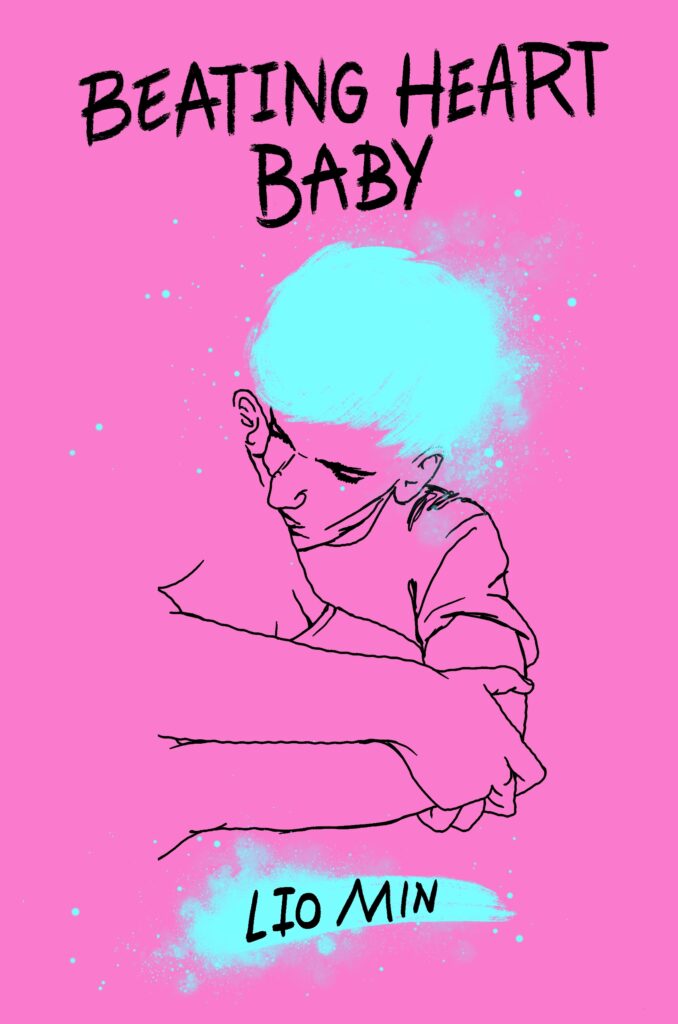
As a writer, who or what would you say are some of your greatest creative influences and/or sources of inspiration in general?
I always tell people that BHB is the novelization of an anime. I grew up reading manga and watching anime, and the intentionality of animation is my single greatest artistic inspiration. As with writing, nothing exists until you place it just so; there are no accidental symbols, no ambient scener and sounds, or improvised moments. Every sunbeam was designed and drawn and its movement over and against someone’s outstretched hand is choreographed in sync with that hand, with the leaves that swirl in the languid late summer breeze— You get the gist. My favorite anime series simultaneously leave nothing and everything to imagination; you sense the impossible world beyond the impossible frame and long to step into it.
So, anime. And then there’s music. As I wrote BHB, I obsessively curated three playlists: one for the events of the book from the protagonist Santi’s POV, one for the events of the book from the protagonist Suwa’s POV, and one from my authorial POV. There are sequences of the book that are beat-by-beat soundtracked by a specific song; for example, the ending of Track 7 is synced with Mitski’s “Geyser.” On a structural level, the moment when the POV switches halfway through the book was my way of pulling off a beat switch; the song that inspired that choice was Frank Ocean’s “Nights.” Pretty much all of my writing is “scored” to, rather than inspired by, what I’m listening to.
And then of course, other writing. Specific to BHB, I meditated on Bryan Washington’s Lot, Cynthia Kadohata’s The Floating World, Andrea Lawlor’s Paul Takes the Form of a Mortal Girl, and Min Jin Lee’s Pachinko.
What are some of your favorite elements of writing? What do you consider some of the most frustrating and/or difficult?
I love writing sensory immersion and crescendoing a scene toward a specific action or line. Dialogue is fun to refine; I imagine it as parrying myself until both of “my” weapons have been honed to gleaming.
The most frustrating part of writing is getting not just a first draft down, but connected, which is a bear no matter if I’m reporting a story or writing something personal, and especially gnarly when I’m both the conductor and the train, so to speak. An exquisite corpse is still a corpse…
Aside from writing, what are some things you would want others to know about you?
I did marching band for three years at a big football school and learned all of my music by ear because I couldn’t read/translate the sheet music. (The double-edged sword of perfect pitch.)
What’s a question you haven’t been asked yet but that you wish you were asked (as well as the answer to that question)?
“What, if any anime was the main inspiration for Mugen Glider?” (The fake anime in BHB.)
In terms of imagery/mood, From the New World, specifically this ending credits sequence. In terms of story, the films 5 Centimeters Per Second and Millennium Actress, directed by Makoto Shinkai and Satoshi Kon respectively.
What advice might you have to give for aspiring writers?
Live. Both as an imperative and as a person beyond writing.
Are there any other projects you are working on and at liberty to speak about?
I’m doing a residency soon wherein I will supposedly be working on Book 2… More generally, I write a monthly-ish column for Catapult called Formation Jukebox, in which I deep dive into songs and relate them back to transness/transitioning, a process I am currently…undergoing? Living?
Finally, what LGBTQ+ books/authors would you recommend to the readers of Geeks OUT?
David Wojnarowicz’s memoir Close to the Knives cleaved me to my core. There’s my writing and like, life and thinking pre-Knives and then post-Knives. I like their books too but I go up for the “other writing” (short stories, essays, criticism, reports) by Bryan Washington, Andrea Long Chu, Alexander Chee (especially this, oh my god), and K-Ming Chang. Anthony Veasna So’s “Baby Yeah.” (RIP.) If it’s a cliché to recommend Ocean Vuong, I don’t want to be original. Our Dreams at Dusk by Yuhki Kamatani is a gorgeous and tender manga for those of y’all searching in that world, as is Blue Period by Tsubasa Yamaguchi (which is also about becoming an artist, in this case within the unique ecosystem of fine art).
Header Photo Credit Bao Ngo

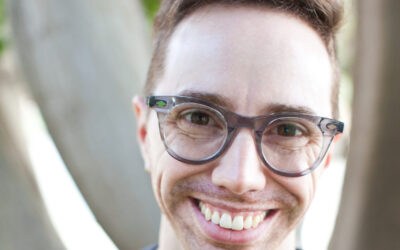
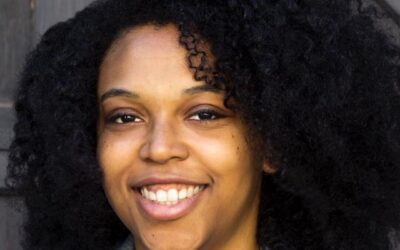
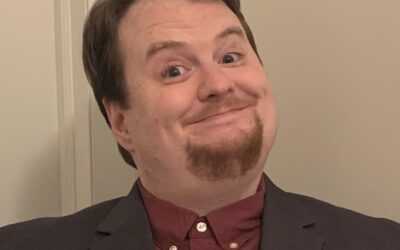
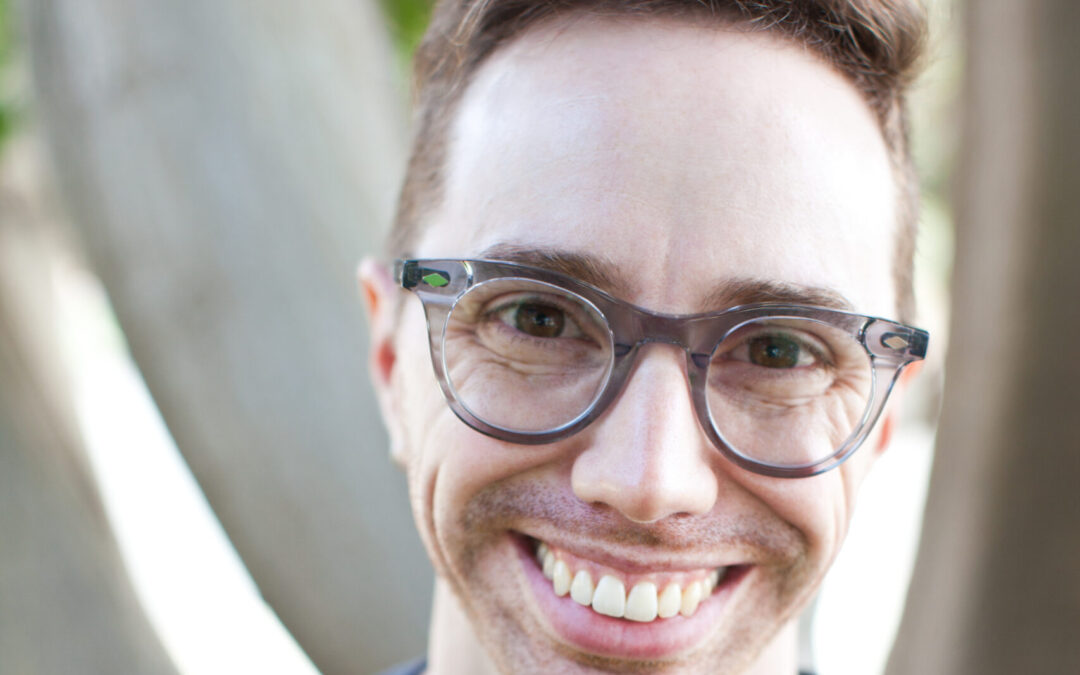
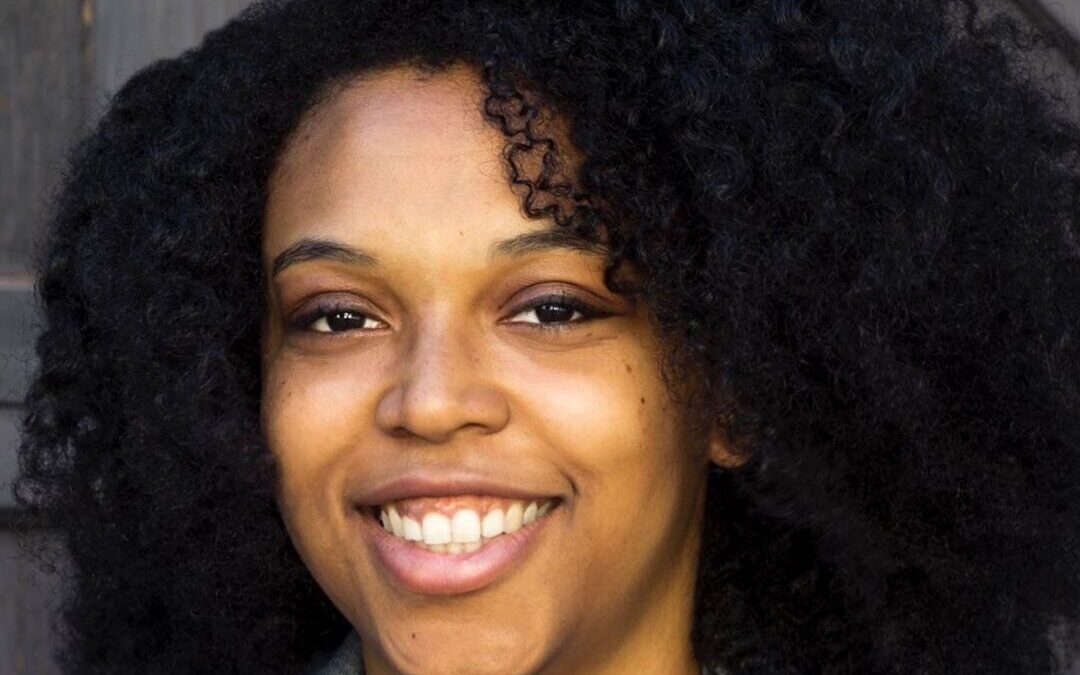
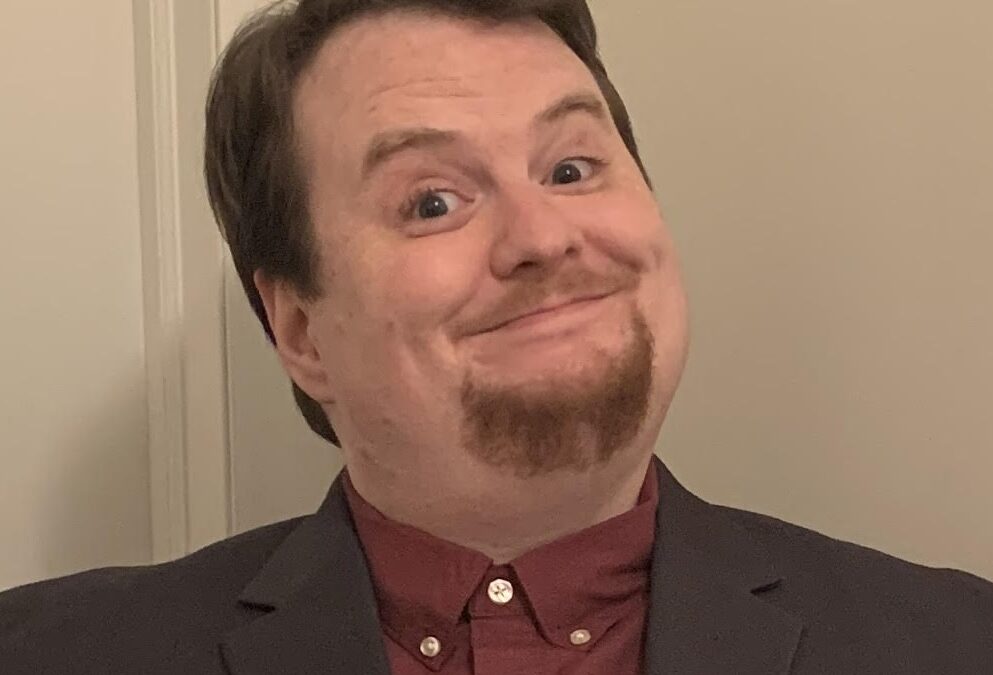
0 Comments